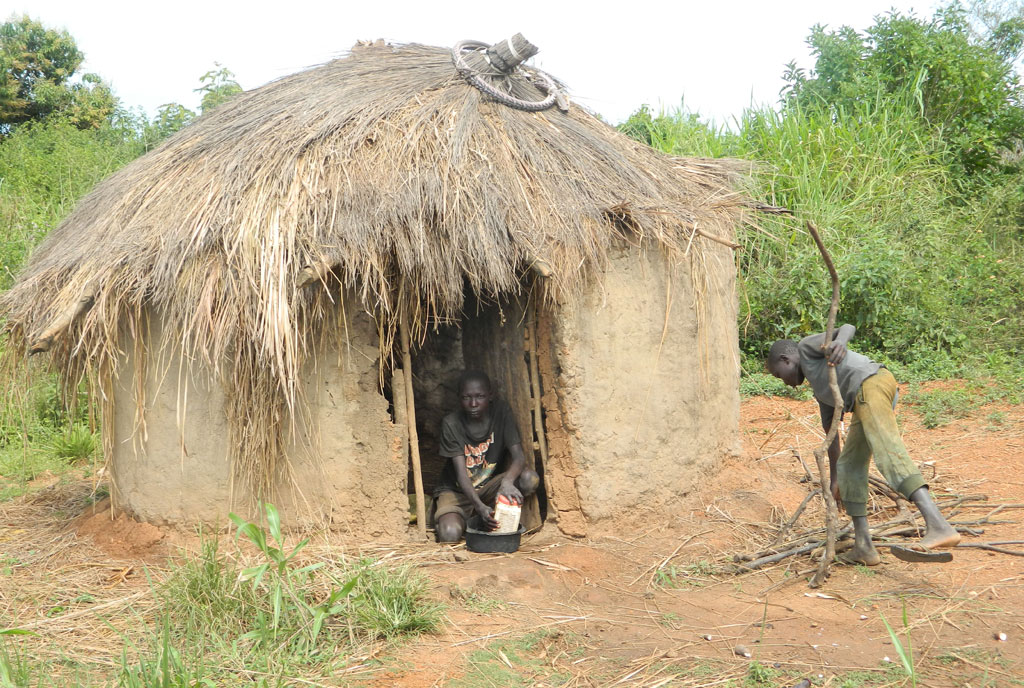Food shortage leaves HIV/Aids orphaned children in despair

Orphaned children at their grass-thatched hut at Tarogali Village, Ibuje Sub-county in Apac District in February 2020. PHOTO/ SANTO OJOK
What you need to know:
- Many of the children have been abandoned by their relatives while others drop out of school to look after their siblings.
Children whose parents have died as a result of HIV/Aids in Lango Sub-region continue to face harsh living conditions due to food shortage caused by poor crop yields.
Brenda Abonyo, 15, who heads a family of five at Atonga Estate, Agwa Parish, Akali Sub County in Kwania District, daily struggles to feed her siblings.
“For the last two months, we have been eating one meal a day because we have no money to buy food. During weekends, my siblings and I dig for neighbours in exchange for food,” Abonyo says.
“We don’t get any support from our relatives and we have continued to face stigma and neglect,” the Primary Seven pupil of Amorigoga Primary School says.
Mr Fred Otim, the chairperson of people living with HIV/Aids in the district, says children are the worst affected because they are neglected.
“Orphaned children are denied basic necessities such as food and nutrition by their extended families. If they are HIV-positive, the situation becomes worse and their survival is threatened,” he says.
“If they have ailing siblings, the sole guardians are likely to be out of school to take care of them. Some of these children are forced into early marriages,” Mr Otim adds.
About 12,000 people are under antiretroviral therapy (ART) in the district, according to Mr Otim.
Ms Jane Abuc, the chairpersons of people living with HIV/Aids in Oyam District, says due to economic hardship, three orphaned girls in Ngai Sub County contracted HIV after they engaged in commercial sex.
Mr Fred Omara, the chairperson of persons living with HIV/Aids in Lira District and Lango Sub-region, calls for urgent support for these children.
“My members complain of food shortage since they find it difficult to take their medication, especially those who take ARVs twice a day since they cannot afford two meals. These drugs are very strong and for them to work effectively, a patient needs to eat something at least before taking it,” Mr Omara says.
Ms Nancy Lakomekech, the community development officer of Omot Sub County in Agago District, says there is no programme in the area that targets such children.
“We appeal to partners to help such vulnerable persons,” Ms Lakomekech says.
Mr Geoffrey Alex Ogwal Adyebo, the Kwania chairperson, says they have partners like Uganda Aids Commission that are implementing HIV-related activities.
They carry out treatment, testing and counselling but they do not provide direct support to the orphaned children.
“The Office of the Prime Minister some years ago supported vulnerable households with relief food when we experienced prolonged drought,” Mr Adyebo says.
The Uganda Population-Based HIV Impact Assessment 2016-2017 indicates that the prevalence of HIV among children aged 0-14 is 0.5 percent.




